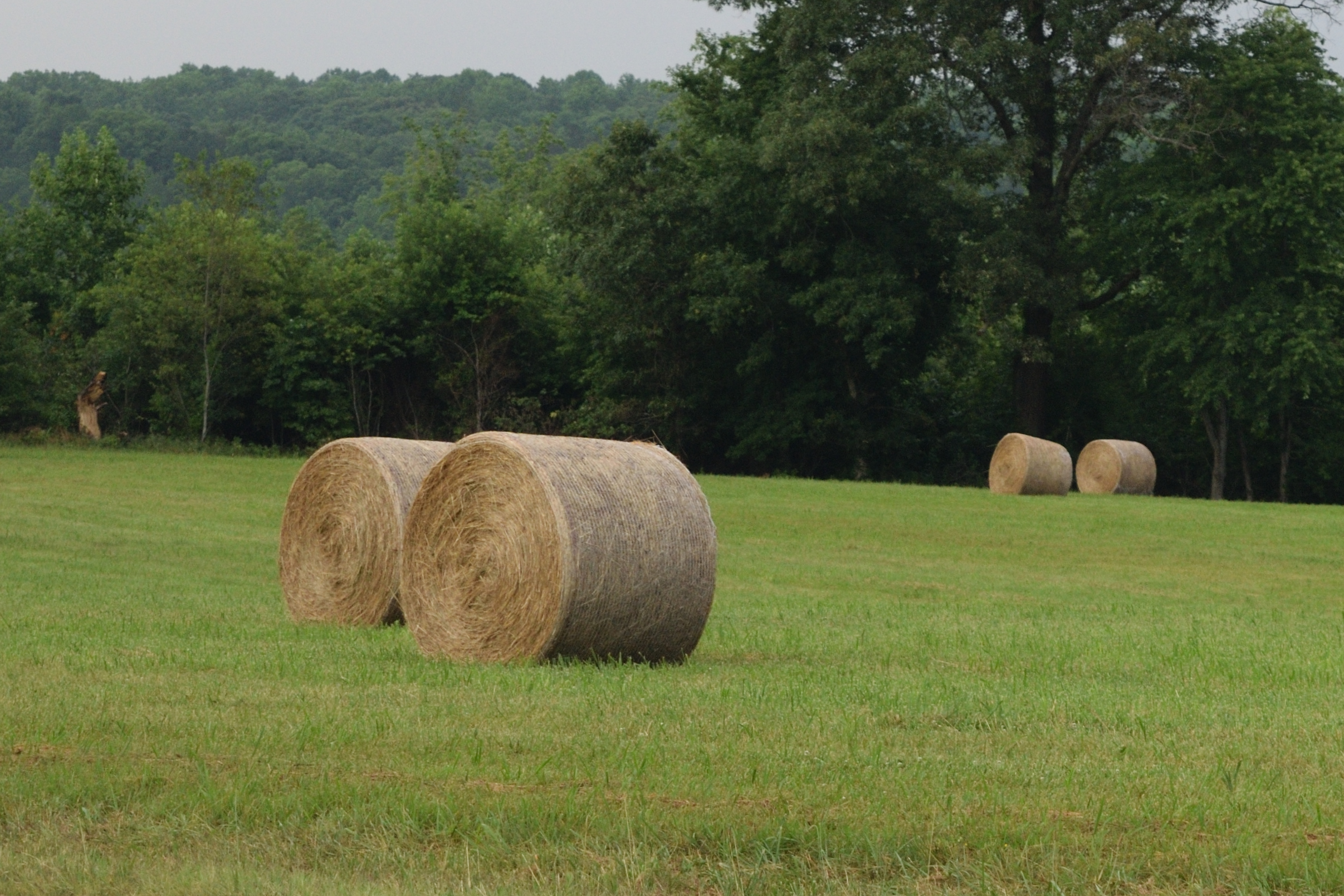
Pictured: Freshly baled hay in Nottoway County, Virginia. Let the experienced conservation easement lawyers at Hawthorne & Hawthorne help you protect your rural property from being developed.
Let the Experienced Lawyers at Hawthorne & Hawthorne Help You with Your Conservation Easement
Conservation easements are becoming increasingly popular among landowners in Southside Virginia. What are conservation easements? Conservation easements (in certain cases also known as “open-space easements”) are voluntary, permanent agreements designed to protect and preserve open-space land, the habitat of wildlife, and unique geographical features. These agreements limit specific uses or prevent certain types of development from taking place on the property in perpetuity.
Whether you are considering whether or not to put a conservation easement on your land, or you are considering whether or not to buy land that already has a conservation easement on it, let the experienced lawyers at Hawthorne & Hawthorne be your guide.
What Restrictions Are Required in a Conservation Easement?
Although the terms of each conservation easement will vary, a typical conservation easement will impose the following types of restrictions on your property:
- It will limit the number of times that the property may be divided;
- It will limit the number, size, and location of houses and other buildings on the property;
- It will prohibit most industrial and commercial uses, other than agricultural or forestal uses;
- It will require buffer zones to be maintained around streams and wetlands to protect against erosion and to filter runoff;
- It will require best management practices (BMPs) to be used if timber is cut; and
- It will prohibit mining on the property, including drilling for oil and natural gas.
These are some of the restrictions that a typical conservation easement might impose, but these are certainly not the only restrictions involved. Each recipient organization (or “donee” or “grantee”) will have a different “template” of restrictions that they typically require. One representative template that you might wish to review is the Virginia Outdoors Foundation’s basic template. Even if you choose to donate your conservation easement to another organization, many of the basic provisions of the easement will likely be similar.
What Tax Benefits Do Conservation Easements Provide?
Because a conservation easement is usually designed to qualify as a charitable contribution for tax purposes, there may be certain tax benefits for which you are eligible upon donating a conservation easement, including federal tax deductions and Virginia tax credits. The federal tax deductions are non-transferable and must be used by you; the Virginia tax credits, however, can either be used by you or sold to others (or some combination thereof). Our attorneys are able to work with your accountant and tax-credit broker to claim any federal tax deductions and Virginia tax credits for which you may be eligible upon donating an easement.
What About ACUB Easement Purchases Near Fort Pickett?
Our attorneys are experienced with handling easements that qualify under the Army Compatible Use Buffer (ACUB) program, which is an easement purchase program that applies to eligible properties located in the immediate vicinity of Fort Pickett. Our attorneys will be glad to help you determine whether or not your property is eligible and to help you through the application process.
Let Our Experienced Conservation Easement Lawyers Help Protect Your Land!
Whether or not you take the time to read through the VOF template or any other organization’s easement template, our attorneys will be glad to speak with you about the many ways that a conservation easement can be used to preserve your land for future generations and can help you choose a recipient organization that is appropriate for meeting your goals for the preservation and management of your land. Our attorneys are experienced and capable of advising you on the extensive preparation necessary for donating a conservation easement. To date, our attorneys have helped landowners donate conservation easements on a collective total of over 30,000 acres of land in Virginia.
Our attorneys are available to help clients donate conservation easements on properties located anywhere in Southside Virginia, including properties in Amelia County, Appomattox County, Buckingham County, Brunswick County, Campbell County, Charlotte County, Cumberland County, Dinwiddie County, Halifax County, Lunenburg County, Mecklenburg County, Nottoway County, and Prince Edward County.
No matter what kind of conservation easement you might wish to donate or which recipient organization you might choose, the process for donating a conservation easement will take at least several months, so contact us without delay!